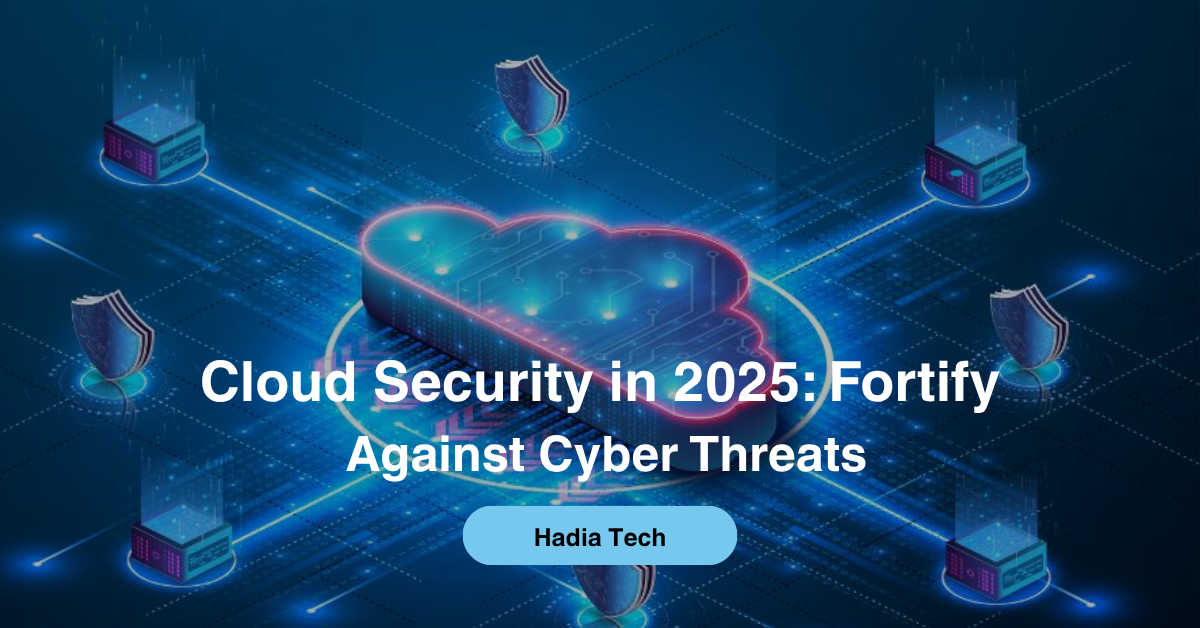Cloud Security in 2025: Fortify Against Cyber Threats
Cloud computing gave us wings. Elastic scalability. Pay-as-you-go models. Near-magical uptime.
But here’s the rub: with great power comes great… attack surface.
In 2025, cloud security isn’t just a checkbox it’s survival. And guess what? cloud scurity is not just the hackers you need to worry about. Sometimes, it’s Greg from Finance uploading sensitive data to a public S3 bucket “just for a second.”
I’ve seen it happen.
This article will take you deep into the cloud security landscape of 2025. We’ll break down current threats, best practices, and the clumsy, very human mistakes that still cause havoc in systems supposedly built for resilience.
Buckle up.
Why Cloud Security in 2025 Is More Complex Than Ever
Let’s be clear: the cloud has matured. What used to be a trendy DevOps experiment is now the spine of global infrastructure.
But so have the threats.
1. The Attackers Got Smarter
We’re no longer fighting hoodie-wearing teens in their parents’ basements. Today’s attackers? Think AI-powered reconnaissance tools, automated credential stuffing bots, and deepfake-based social engineering.
It’s organized. It’s scalable. And it’s relentless.
Common Cloud-Specific Threats in 2025:
-
Cloud ransomware 2.0 – Now encrypting cloud backups too
-
Cross-cloud misconfigurations – Especially in hybrid setups
-
Abuse of serverless functions – Invisible malware at scale
-
Credential leakage via CI/CD pipelines – DevOps, meet DevOops

2. The Perimeter Is Gone
There is no “edge” anymore. Your cloud ecosystem might involve:
-
AWS
-
Azure
-
GCP
-
SaaS tools like Salesforce and Slack
-
Third-party APIs
And it’s all talking. Constantly.
Zero Trust isn’t optional anymore it’s table stakes.
3. Humans Are Still Clicking Things They Shouldn’t
You’d think phishing would be old news by now. Nope. In fact, it’s evolved:
“You have a pending DocuSign file from HR.”
And just like that, an intern has given away IAM keys, and this is apart of cloud security.
The Biggest Mistakes Organizations Still Make (That Hackers Love)
Let’s get painfully honest. Most breaches in 2025? Not state-sponsored attacks. Not zero-days.
They’re boring.
Preventable.
Self-inflicted.
Here are the top foot-guns:
1. Leaving Storage Buckets Public “Temporarily”
Someone “just testing” ends up publishing 10,000 client records.
Pro tip: There is no such thing as temporary in the cloud. If it’s public, it’s permanent in the eyes of attackers.
2. Overprovisioned IAM Roles
Because “it’s just easier this way.” And then that same role gets compromised.
Use least privilege like it’s a religion.
3. Hardcoded Secrets in Repos
Still happening. Yes, in 2025.
Rotate secrets. Use secret managers. And please no .env files in GitHub.

Defensive Strategies That Actually Work (and Don’t Require a PhD)
Enough doom and gloom. Let’s talk solutions that actually help in the real world.
1. Embrace Zero Trust Architecture
Don’t trust users. Don’t trust devices. Don’t trust internal services.
Every request should be verified.
Think:
-
Identity-based access controls
-
Continuous authentication
-
Microsegmentation
2. Automate Misconfiguration Detection
Manual audits? Nah. It’s 2025.
Use tools like:
-
[Internal Link: hadiatech.com]’s CloudGuard AI
-
Prowler, ScoutSuite, Steampipe
-
[External Link: saadigraphics.com] for visualization overlays
Scan everything IAM policies, cloud security groups, VPC flows, serverless functions. Frequently. Automatically.
3. Shift CLoud Security Left
Cloud Security isn’t a post-deploy chore.
Bake it into dev cycles:
-
Run static security scans on pull requests
-
Use container image scanning tools (Trivy, Clair, etc.)
-
Include secrets-detection hooks in CI/CD pipelines
I remember a colleague who didn’t check the Docker image size. Ended up shipping 700MB of dev credentials. Nobody noticed… for weeks.
Don’t be that shop.
4. Cloud-Native Cloud Security Services Aren’t Optional
Use what the platforms give you:
-
AWS GuardDuty, Macie, cloud Security Hub
-
Azure Sentinel
-
GCP cloud Security Command Center
They’re not perfect, but they’re better than flying blind.
The Rise of AI: Friend and Foe
Ah, yes. The AI arms race.
On one side, threat actors use AI to write better phishing emails, mimic executive voices, or automate exploit chains.
On the other side? We’ve got AI-based anomaly detection, contextual access control, and autonomous response systems.
Examples of AI Defending the Cloud
-
Auto-isolation of anomalous EC2 instances
-
Real-time language model analysis of suspicious logs
-
Behavioral pattern alerts for lateral movement
But remember, AI is a tool, not a savior. Garbage in, garbage out. Poorly trained models will trigger 1,000 alerts you ignore.
And then boom. Breach.
2025’s Cloud Security Checklist: The Non-Negotiables
Here’s your 2025 no-excuses cloud security checklist:
Use MFA Everywhere
Especially for root/admin users.
Encrypt Everything
At rest, in transit, in use (confidential computing FTW).
Run Regular Chaos cloud Security Drills
Simulate breaches. Test people. Audit responses.
Monitor Everything in Real-Time
And log to immutable storage.
Audit IAM Policies Weekly
Set a recurring task. No excuses.
Scan Code + Infrastructure Continuously
IaC vulnerabilities? They’re real and exploitable.
Rotate Keys/Secrets Every 90 Days
Automate it, or it won’t happen.
Closing Thoughts: It’s Not Just Tech. It’s Culture.
The biggest shift in 2025 cloud security?
Not tech.
Mindset.
Cloud Security isn’t a department’s job it’s everyone’s job. From engineers to PMs to that guy who insists on using “password123” (you know who you are).
You can build the most secure system in the world, but if your team doesn’t care, you’re toast.
So talk about it.
Train for it.
Test for it.
Then test again.
Call to Action: Ready to Lock Down Your Stack?
Want help auditing your current cloud posture? Or looking for a customized, zero-trust game plan?
Check out [Internal Link: hadiatech.com] for expert services that don’t just secure they harden.
Because in 2025, resilient is the new secure.




